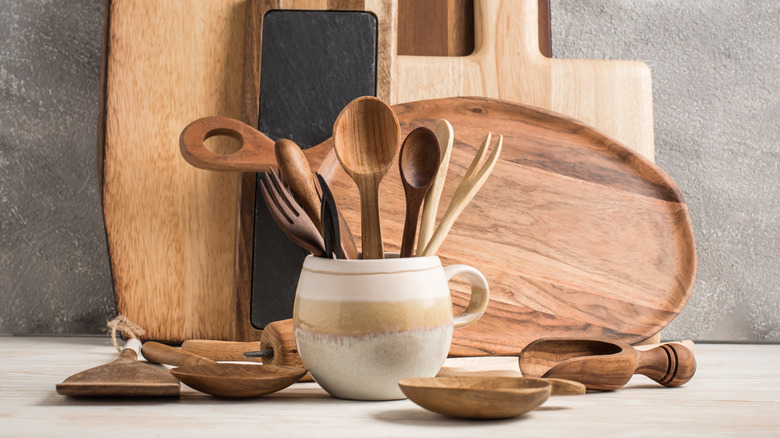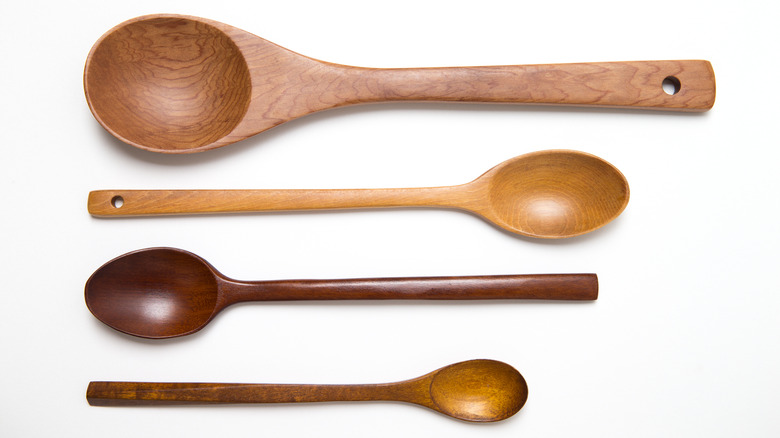The Absolute Best Type Of Wood For Cooking Utensils
Carving wood into a tool for cooking might be as old as the idea of cooking itself. Archaeologists have found wooden utensils in Egyptian tombs and Bronze-Age settlements. A good wooden spoon — or spatula if your preferences fall in line with Julia Child's – can work wonders in the kitchen. The durable utensils can be used on a variety of surfaces, and despite not being dishwasher safe are easy to clean and care for.
There are tons of different wooden utensils out there on the market though, and when shopping for some new tools, or stocking a kitchen for the first time, it can be hard to tell them all apart. Once important criteria to pay attention to is the type of wood being used. Just as it's important to know the material and coating for a pan, it's important to make sure you're buying a wooden utensil that is constructed to suit your needs. That starts with what it's made of, and unfortunately, not all woods are made equal.
Hardwoods make great cooking utensils
According to Cully's Kitchen, the best kinds of wood for cooking utensils are hardwoods. They tend to have a tighter grain, and are less porous than wood from softwood trees, making them perfect for use in the kitchen (via Four Oaks Crafts). Hardwoods tend to be deciduous trees like Teak, Oak, Sapele, and Meranti (via Arnold Laver). Keep an eye out for these types of material when shopping for a new utensil, or research the chosen material to ensure it's not a softwood. Having that finer grain means that less material is going to be able to penetrate the wood. It also makes the wood more durable, and therefore longer lasting (via Early Wood Designs).
Another one of the strengths of wood utensils is their ability to kill bacteria between uses. Despite wood's porous nature as a material, as long as they are properly cared for, wooden utensils are naturally antimicrobial. A study by the UC-Davis Food Safety Lab found that any bacteria directly on the surface of wood cooking surfaces is either washed away or absorbed into the wood where it is unable to reproduce and dies off. The main key to this process is a simple cleaning, and plenty of time left out to dry. A good wooden utensil should be cleaned by hand, never soaked in water, and be recoated with a natural oil like linseed oil from time to time (via Cully's Kitchen).

